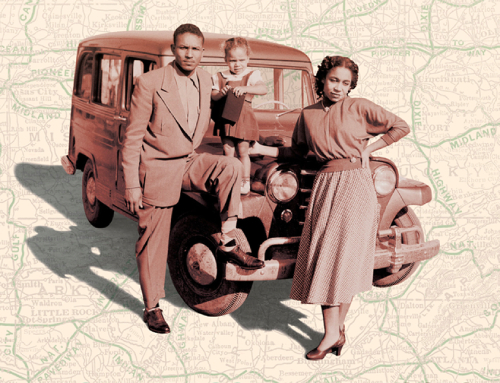Want to take a deeper dive into the Negro Motorist Green Book and the stories tied to its contents? Explore the Smithsonian’s Green Book Learning Lab digital resource collection and the research done by Green Book expert Candacy Taylor below!

Curious about the Green Book? Spend some time within the Smithsonian’s Green Book Learning Lab collection. A free platform for exploring the Smithsonian’s community of learning, this collection of digital resources includes videos, articles, images, artifacts, and art that explore the larger themes of the Green Book.
Image Credit: [Photographic print of an unidentified couple], early 20th-mid 20th century. Collection of the Smithsonian National Museum of African American History and Culture. Gift of Henrietta W. Shelton.
LEARN MORE
Cultural documentarian Candacy Taylor has been researching the Green Book since 2013. Cataloguing nearly 10,000 Green Book listings, scouting over 4,000 Green book sites in 48 states, and photographing over 170 Green Book properties, Candacy is one of the foremost experts on the travel guide and includes a wealth of information on her site. Her award-winning book, The Overground Railroad, chronicles the history of The Negro Motorist Green Book and features photographs of Green Book sites, interviews with people who used these facilities, as well as living Green Book property owners.
LEARN MORE
In the 1930s, a black postal carrier from Harlem named Victor Green published a book that was part travel guide and part survival guide. It was called The Negro Motorist Green Book, and it helped African-Americans navigate safe passage across America well into the 1960s. Explore some of the segregated nation’s safe havens and notorious “sundown towns” and witness stories of struggle and indignity as well as opportunity and triumph.
WATCH NOWThe Negro Motorist Green Book was created by the Smithsonian Institution Traveling Exhibition Service in collaboration with Candacy Taylor and made possible through the generous support of Exxon Mobil Corporation.

